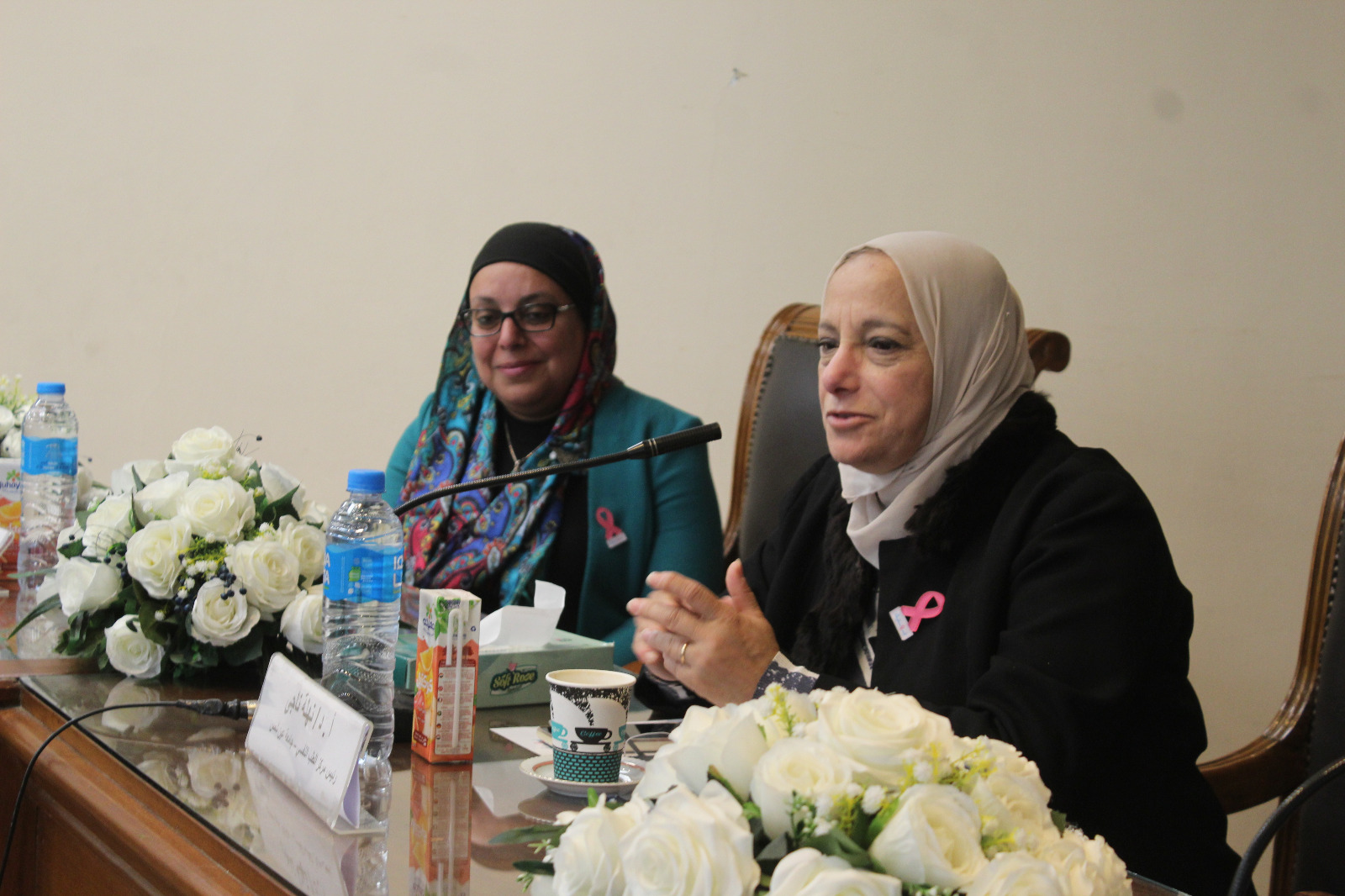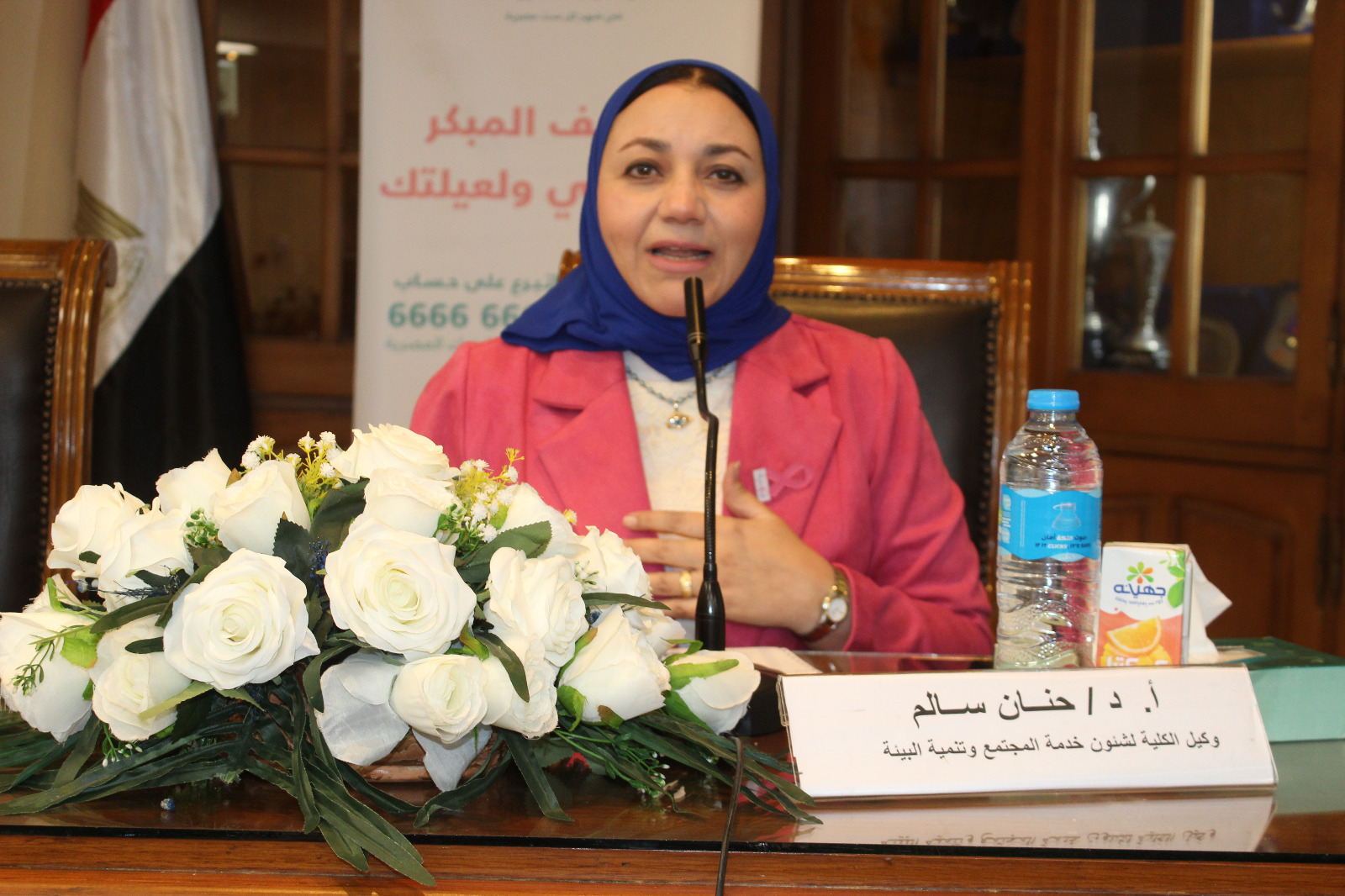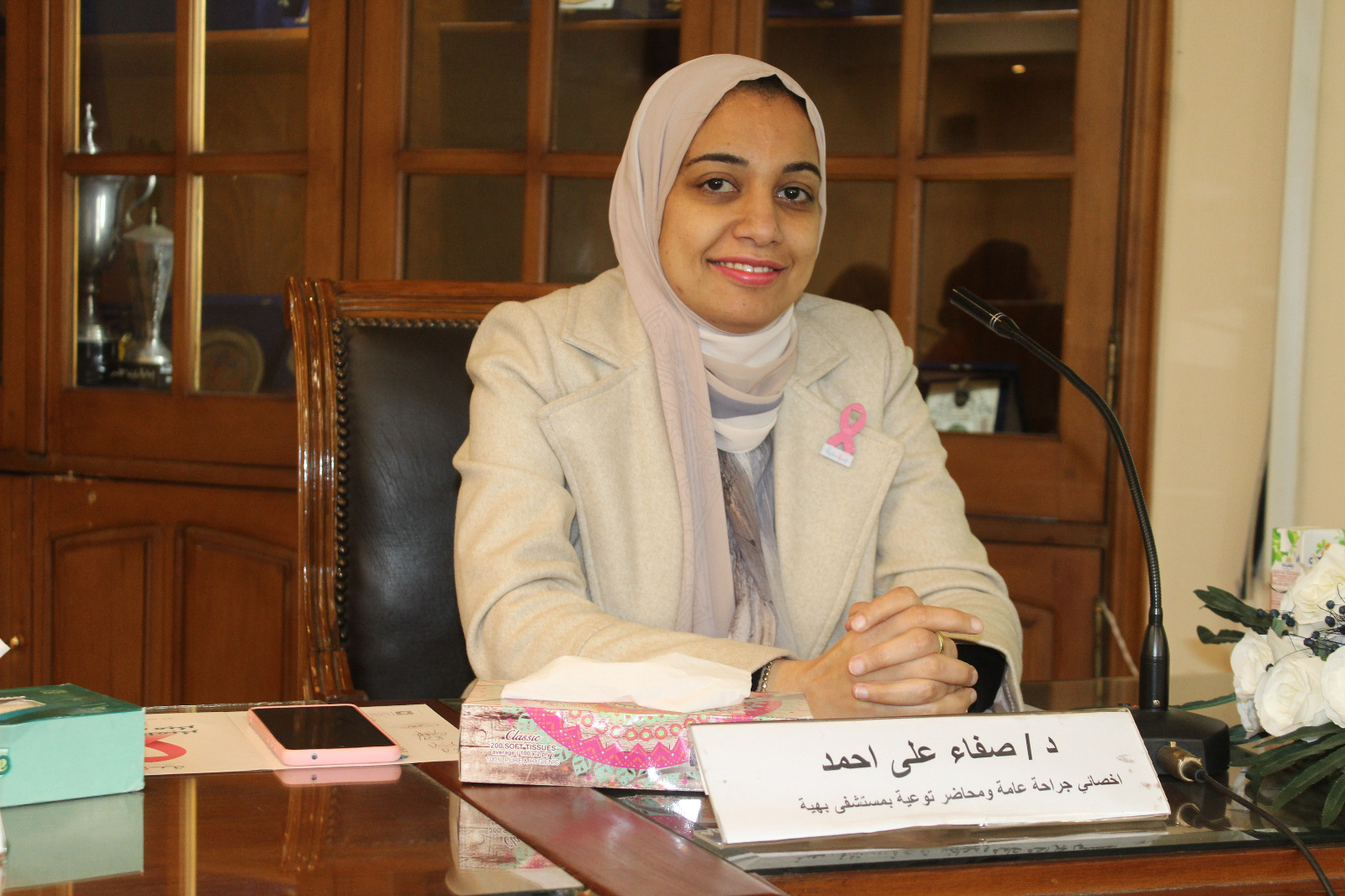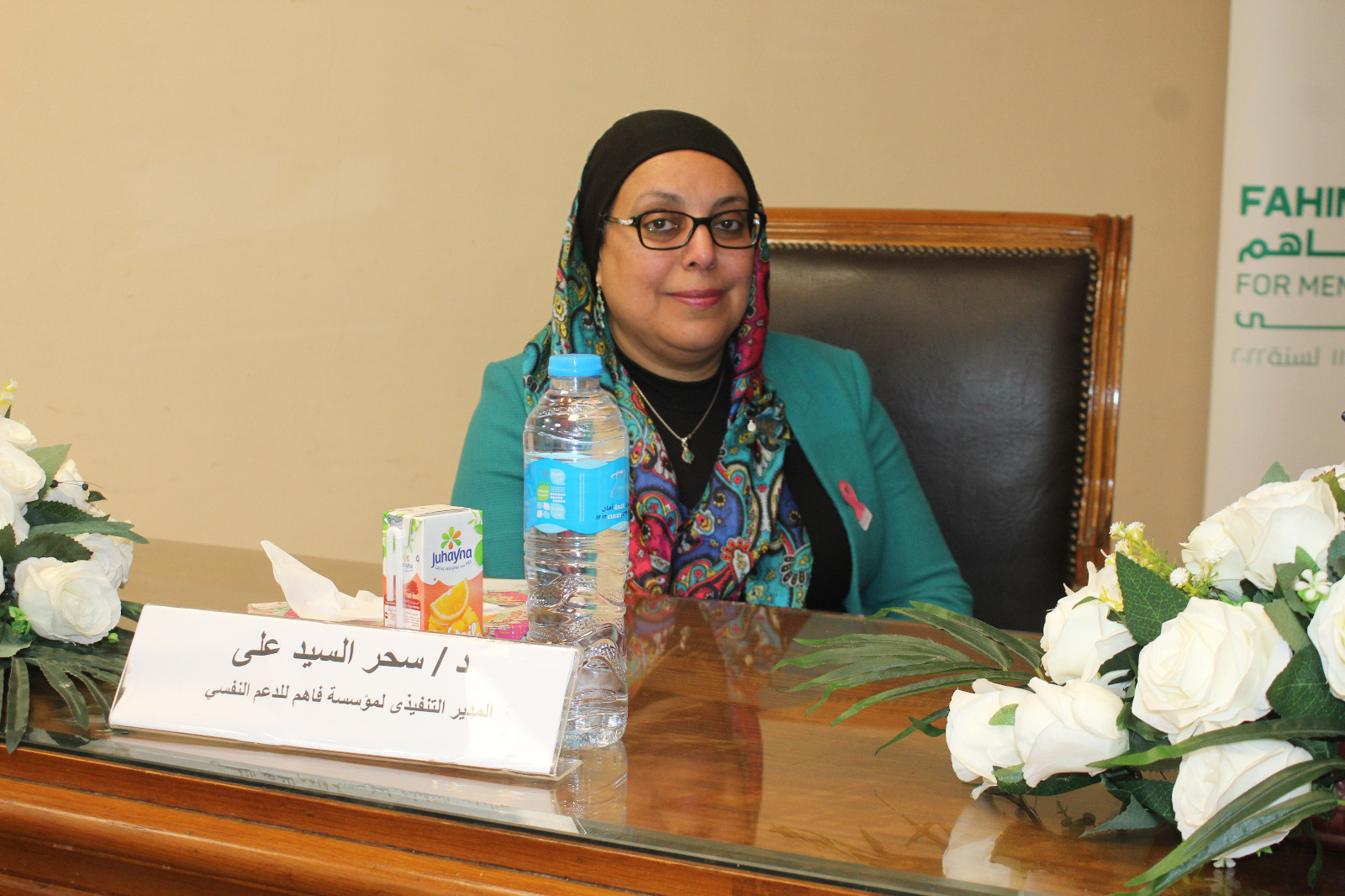Correcting misconceptions and removing psychological obstacles about early detection and treatment of breast cancer, a symposium at the Faculty of Arts
The Faculty of Arts, at Ain Shams University, organized a symposium entitled “Correcting Misconceptions and Removing Psychological Obstacles Regarding Early Detection and Treatment of Breast Cancer” in cooperation with the Fahim Foundation for Psychological Support and the Baheya Foundation.
 |
 |
 |
 |
Under the patronage of Prof. Mohamed Diaa Zain El-Abedeen, President of the University, Prof. Ghada Farouk, Vice President of the University for Community Service and Environmental Development Affairs, Prof. Hanan Kamel Metwally, Dean of the Faculty of Arts, under the supervision of Prof. Hanan Salem, Vice Dean of the Faculty for Community Service and Environmental Development.
The symposium was attended by Dr. Sahar Ali, Executive Director of Fahim Foundation for Psychological Support, Prof. Nahla Nagy, Head of the Psychiatry Center at Ain Shams University, Dr. Safaa Ali is a general surgery specialist and awareness lecturer at Bahia Hospital.
This symposium comes within the framework of an awareness campaign and a joint initiative between the Faculty of Arts, the Fahim Foundation for Psychological Support, and the Baheya Foundation, to increase awareness and provide correct information about early detection and treatments available for breast cancer, which is considered one of the common diseases at present, and can have a significant impact on the quality of breast cancer. The lives of the affected woman and her family members. However, misinformation and psychological barriers may prevent some women from seeking early medical care and effective treatment.
The current campaign is one of the efforts aimed at changing this negative situation, as the campaign works to provide psychological and cognitive support to women with breast cancer and their families, in addition to correcting misconceptions related to the disease and treatment. This support is provided by moving from physical treatment to the psychological and social aspects that They can be essential for healing and improving quality of life.
The Faculty of Arts plays an important role in this campaign by providing the scientific and research expertise and facilities necessary to organize such health events. In addition, senior academics participate in the campaign by providing advice and guidance to the participants and helping to spread awareness and provide the necessary information.
It is worth noting that this campaign is part of the ongoing efforts to eliminate breast cancer and improve women's health care. In light of these efforts, the joint work between the university and other institutions is an example of a partnership based on shared experiences for community initiatives and the safety of individuals in it.
It is expected that the interaction and participation of this campaign will help change the public perception of breast cancer and achieve improvements in the level of care for this deadly disease. The campaign organizers hope that the joint initiatives will continue to provide support to patients and their families and provide the necessary information to the entire community.


.svg)




